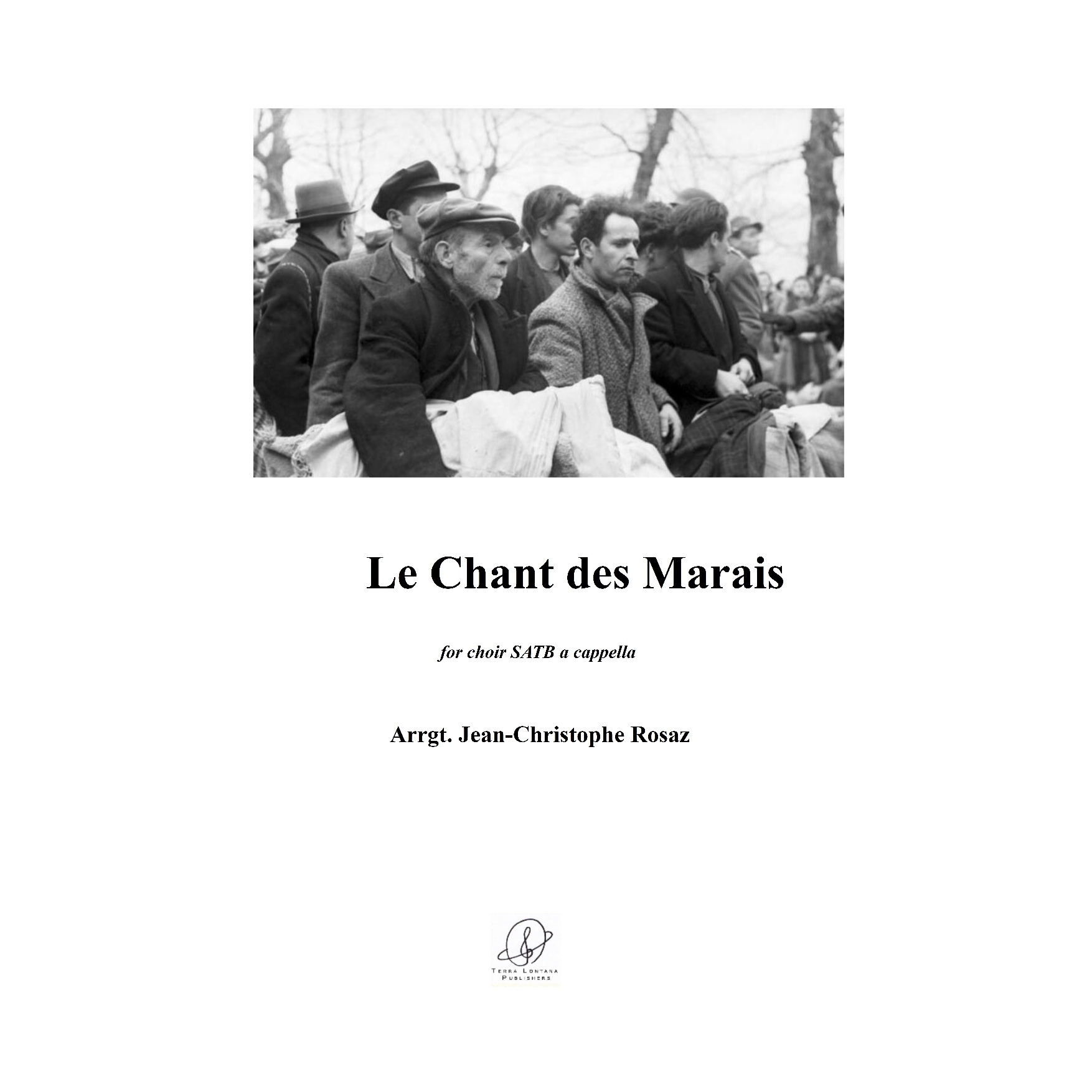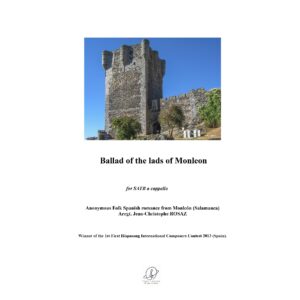Le chant des marais – for SATB choir a cappella
Chant originel: Moorsoldatenlied / 1933
Mélodie: Rudi Goguel
Texte: Johann Esser et Wolfgang Langhoff
durée: env. 4′
Description

Le Chant des marais (en allemand Moorsoldatenlied, « chanson des soldats du marécage ») est l’adaptation en français
d’un chant allemand composé en 1933 par des prisonniers du camp de concentration pour détenus
politiques de Börgermoor. Ce chant est né de la tradition concentrationnaire de faire chanter les détenus,
et de la volonté de ceux-ci de rendre compte des conditions de détention, des violences subies mais aussi de
leur conviction de voir abattue la tyrannie nazie. Les détenus du camp étaient pour la plupart des prisonniers
politiques. Le titre de la chanson évoque les travaux forcés dans les marécages du camp. Quelques-uns des
déportés de Börgermoor, libérés à l’issue de leur condamnation, choisirent de s’exiler et la firent connaître en
Angleterre. Hans Eisler en fit une adaptation. En Espagne, chanté par les volontaires allemands des Brigades,
ce chant acquit rapidement une grande notoriété. Il se répandit en Allemagne, d’un camp de concentration
à l’autre. Il en a été créé des versions dans de nombreuses langues.
The Song of the Marshes (in German Moorsoldatenlied, « song of the soldiers of the marsh ») is the adaptation in French of a German song composed in 1933 by prisoners of the concentration camp for political detainees of Börgermoor. This song was born from the concentration camp tradition of having the detainees sing, and from the desire of the latter to report on the conditions of detention, the violence suffered but also from their conviction that the Nazi tyranny was overthrown. The detainees of the camp were mostly political prisoners. The title of the song evokes the forced labor in the marshes of the camp. Some of the deportees of Börgermoor, released after their sentence, chose to go into exile and made it known in England. Hans Eisler made an adaptation of it. In Spain, sung by the German volunteers of the Brigades, this song quickly acquired great fame. It spread across Germany, from one concentration camp to another. Versions of it were created in many languages.



